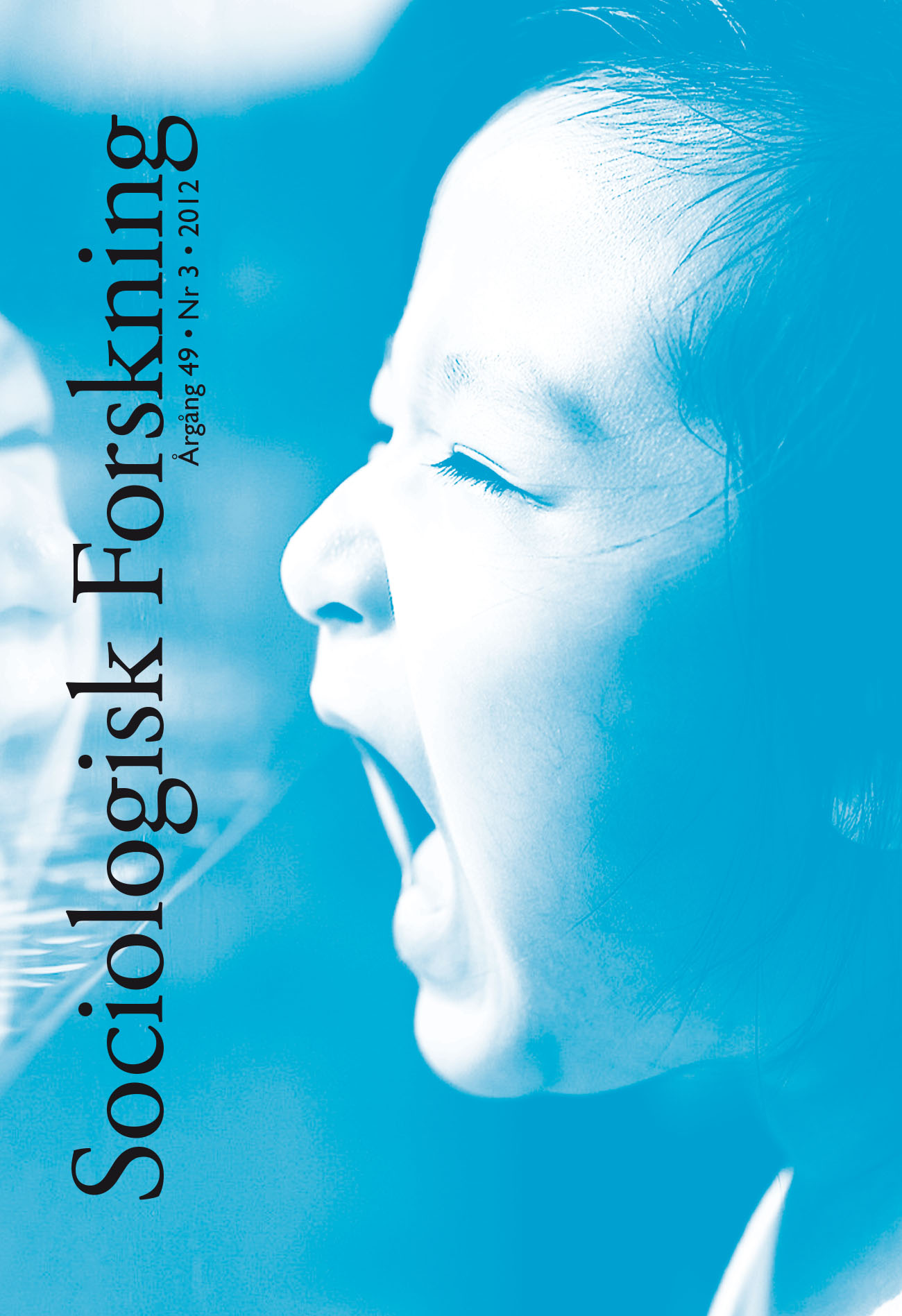Pedagoger i det sociala uppdragets gränstrakter
Att hantera familjerättsliga processer, hot och våld
DOI:
https://doi.org/10.37062/sf.49.18404Keywords:
school, family law, domestic violence, professionAbstract
Pedagogues in the borderland of their social task: dealing with family law proceedings, threats and violence
Drawing upon an explorative study of family law proceedings from a school perspective, the aim of this paper is to examine the school staff’s strategies for solving or coping with problematic situations in this context. Gendered conflicts between adults and violence are extreme cases for pedagogues in school and preschool. How do the staff cope with their own and the children’s vulnerability? Based upon interviews with 22 informants, the staff’s strategies are outlined and discussed in relation to organizational and professional circumstances and intersecting social relations of power. An analytical construction of six types of proactive and reactive strategies, ranging from distance keeping to normalization of own exposure, is utilized in the analysis. Findings suggest that the staff’s strategies to handle challenging events in this context vary with the parent’s gender, class position and ethnicity. Further, it is argued that creating a sense of safety and promoting learning among the children may be obstructed by lack of support from the school’s organization, demands on staff to perform customer oriented attitudes towards parents and lack of clarity concerning the limits of the social task. Conflicts between the organization and profession on the one hand and the educational and the social task on the other hand, are thus illuminated. In conclusion, a further aim of this article is to contribute to broader discussions on men’s violence against women and children – in families as well as in workplaces and in the intersection between these two areas.
Downloads
Published
How to Cite
Issue
Section
License
All content in Sociologisk Forskning is published with immediate open access, under the Creative Commons license CC BY-NC-ND 4.0.
All content may be read, downloaded, shared and printed for non-commercial purposes, free and without fees. Contents may not be altered. When content is reused, author, source and a link to the copyright licence must be provided. The author retains copyright to their content. No publication fees are charged.





